
Summary
European healthcare systems urgently need reform, but policymakers’ mind-sets are still stuck on managing existing systems or at best tinkering with them. They have little incentive to look beyond this to the bigger picture of radical change, so where might the leadership needed to foment a revolution in healthcare come from?
The EU’s citizens have been enthusiastically embracing new healthcare tools ranging from apps to online support groups, but health professionals tend not to trust medical data generated by outsiders. Yet if these new tools were to be fully integrated into our healthcare systems, clinicians and patients would benefit from a more equal role in co-creating new advances. New key players in healthcare might come from sectors ranging from tele-communications to food retailing. Innovations could create new value chains that combine traditional health actors like clinicians and insurers with technology and data companies.
How can this broader range of stakeholders be brought into discussions on healthcare? Can protected silos within healthcare be opened up to engage relevant players from across the value chain of disruptive innovations? How should these innovations be priced and who would pay for them – health systems seeking to reduce costs or private citizens willing to invest in their own continued good health? Where would the financing come from to prototype, test and evaluate disruptive innovation in healthcare? How would the return on investment be calculated – benefits to government budgets of more efficient and cheaper healthcare systems or assessing the benefits to citizens of potential better self-management of their health? What needs to happen to transform successful pilot interventions into large scale implementation?
About
European healthcare systems urgently need reform, but policymakers’ mind-sets are still stuck on managing existing systems or at best tinkering with them. They have little incentive to look beyond this to the bigger picture of radical change, so where might the leadership needed to foment a revolution in healthcare come from?
The EU’s citizens have been enthusiastically embracing new healthcare tools ranging from apps to online support groups, but health professionals tend not to trust medical data generated by outsiders. Yet if these new tools were to be fully integrated into our healthcare systems, clinicians and patients would benefit from a more equal role in co-creating new advances. New key players in healthcare might come from sectors ranging from tele-communications to food retailing. Innovations could create new value chains that combine traditional health actors like clinicians and insurers with technology and data companies.
How can this broader range of stakeholders be brought into discussions on healthcare? Can protected silos within healthcare be opened up to engage relevant players from across the value chain of disruptive innovations? How should these innovations be priced and who would pay for them – health systems seeking to reduce costs or private citizens willing to invest in their own continued good health? Where would the financing come from to prototype, test and evaluate disruptive innovation in healthcare? How would the return on investment be calculated – benefits to government budgets of more efficient and cheaper healthcare systems or assessing the benefits to citizens of potential better self-management of their health? What needs to happen to transform successful pilot interventions into large scale implementation?
Schedule
Featuring
Jenny Billings
Professor of Applied Health Research and Director for Integrated Care Research at the University of Kent
Michał Boni
Member of the European Parliament and former Polish Minister of Administration and Digitisation
Sylvie Bove
Chief Executive Officer of EIT Health
Nicole Denjoy
Secretary General of COCIR
Moderated by
Tamsin Rose
Facilitator
Speakers
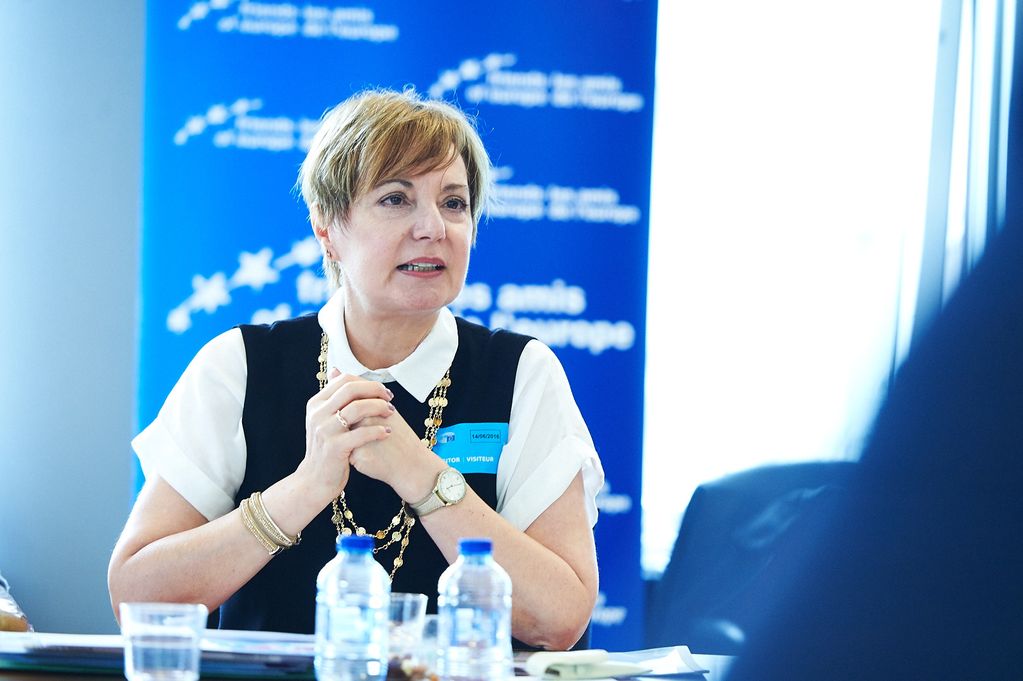
Professor of Applied Health Research and Director for Integrated Care Research at the University of Kent
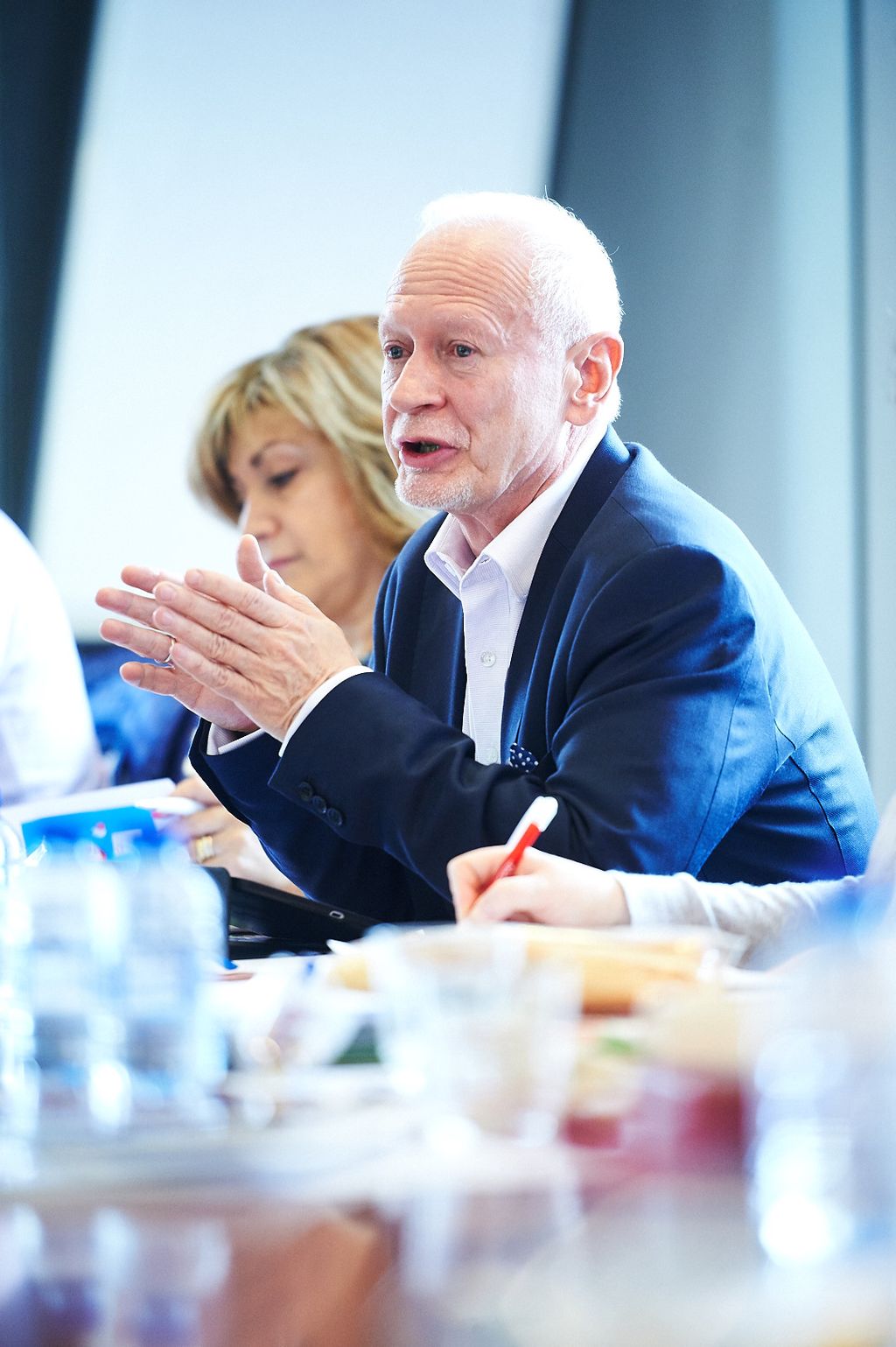
Member of the European Parliament and former Polish Minister of Administration and Digitisation
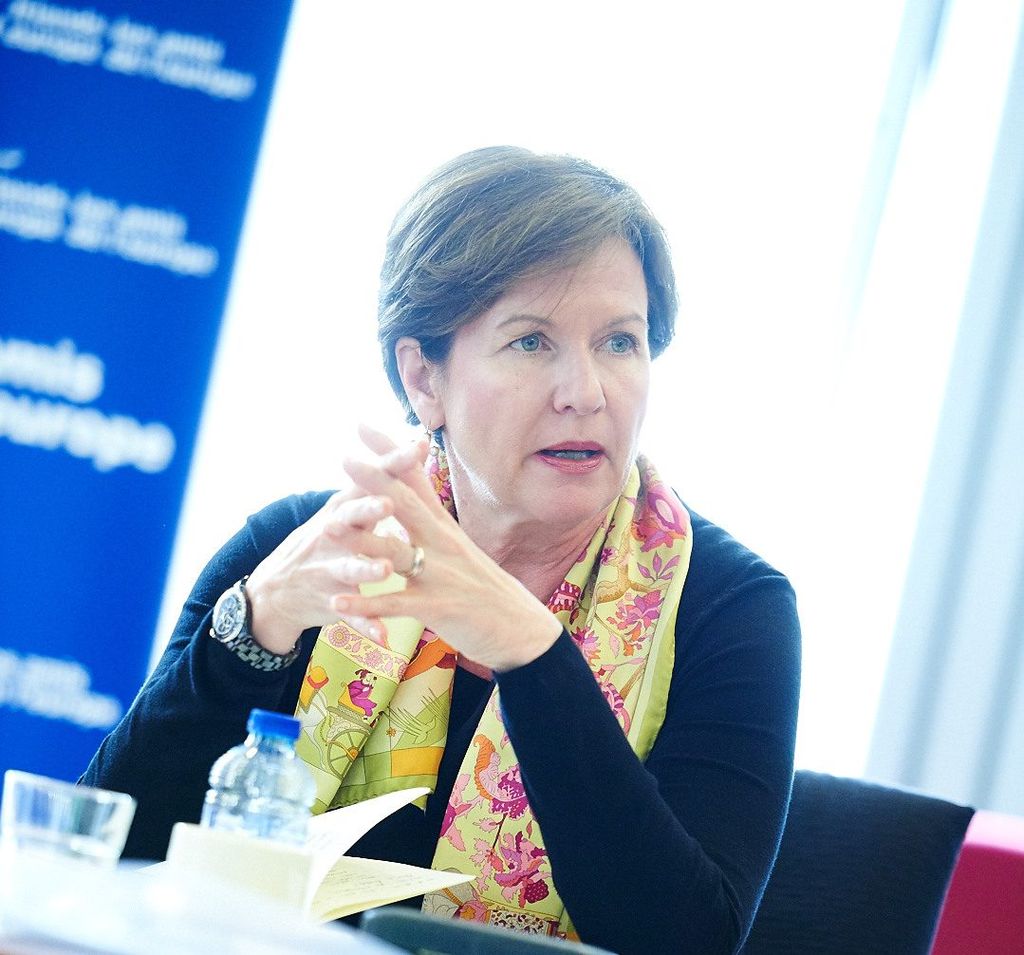
Chief Executive Officer of EIT Health
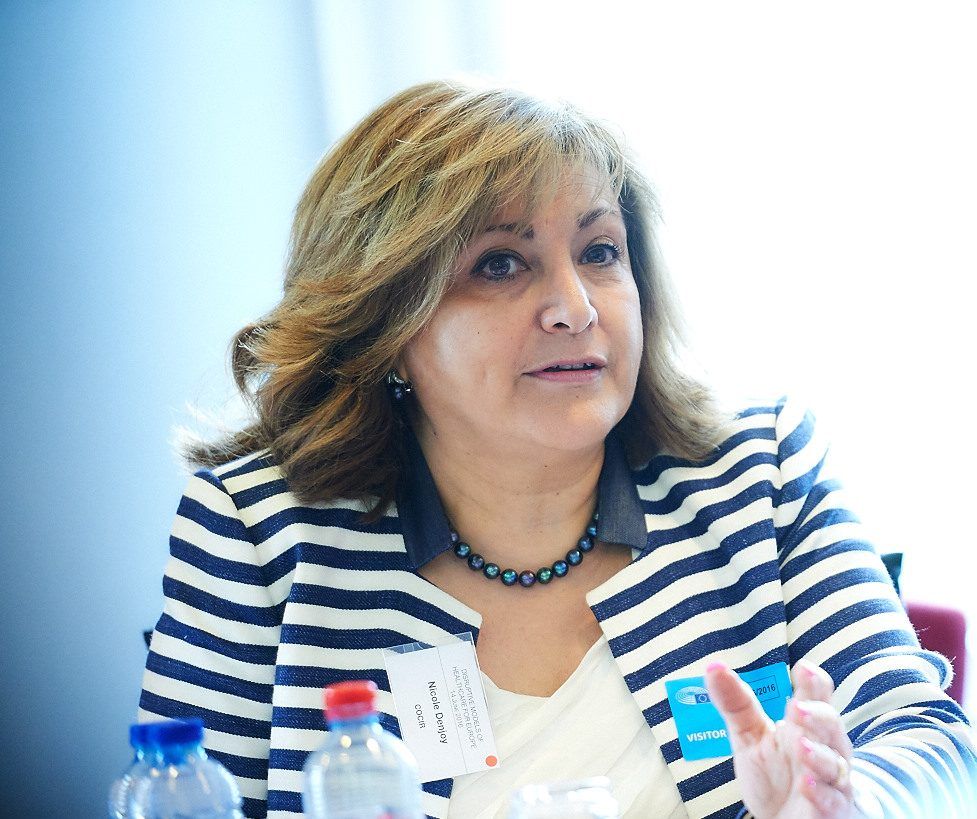
Secretary General of COCIR

Facilitator
Tamsin Rose is a facilitator who was until recently a senior fellow for health at Friends of Europe. Having studied international relations, she has 25 years of experience working across the European continent from Ireland to Mongolia. A natural communicator, Tamsin has been a radio reporter, worked on press for the EU Delegation in Moscow and is currently a member of the external speaker team for the European Commission Directorate-General for Communication, describing how the EU works and key policies to visitor groups from around the world. Since 2002, she has specialised in public health and public participation issues, serving as the Secretary General of the European Public Health Alliance (EPHA), and providing strategic advice for health groups on how to engage successfully with the EU.
Partners
Coorganized with


Activities
Re-imagining Europe's health systems
Past event In person & livestreamed

- Area of Expertise
- Sustainable Livelihoods
Health check for a competitive medical technology sector in Europe
Past event In person

- Area of Expertise
- Sustainable Livelihoods
Healthy ageing for Europe's future: the value of adult immunisation
Past event In person & livestreamed

- Area of Expertise
- Sustainable Livelihoods
Europe’s competitiveness: learnings from the healthcare sector
Past event In person & livestreamed

- Area of Expertise
- Sustainable Livelihoods
Policy Voices | Re-imagining Europe’s health systems
- Category
- Podcast
- Area of Expertise
- Sustainable Livelihoods
Financing the green and just transition: towards further partnerships…
- Category
- #CriticalThinking
- Author
- By Sebastián Nieto-Parra
Reclaiming medicines and health innovation for our health
- Category
- #CriticalThinking
- Author
- By Els Torreele
Hidden biases in public health research: why we are failing our most…
- Category
- #CriticalThinking
- Author
- By Marthe De Boevre
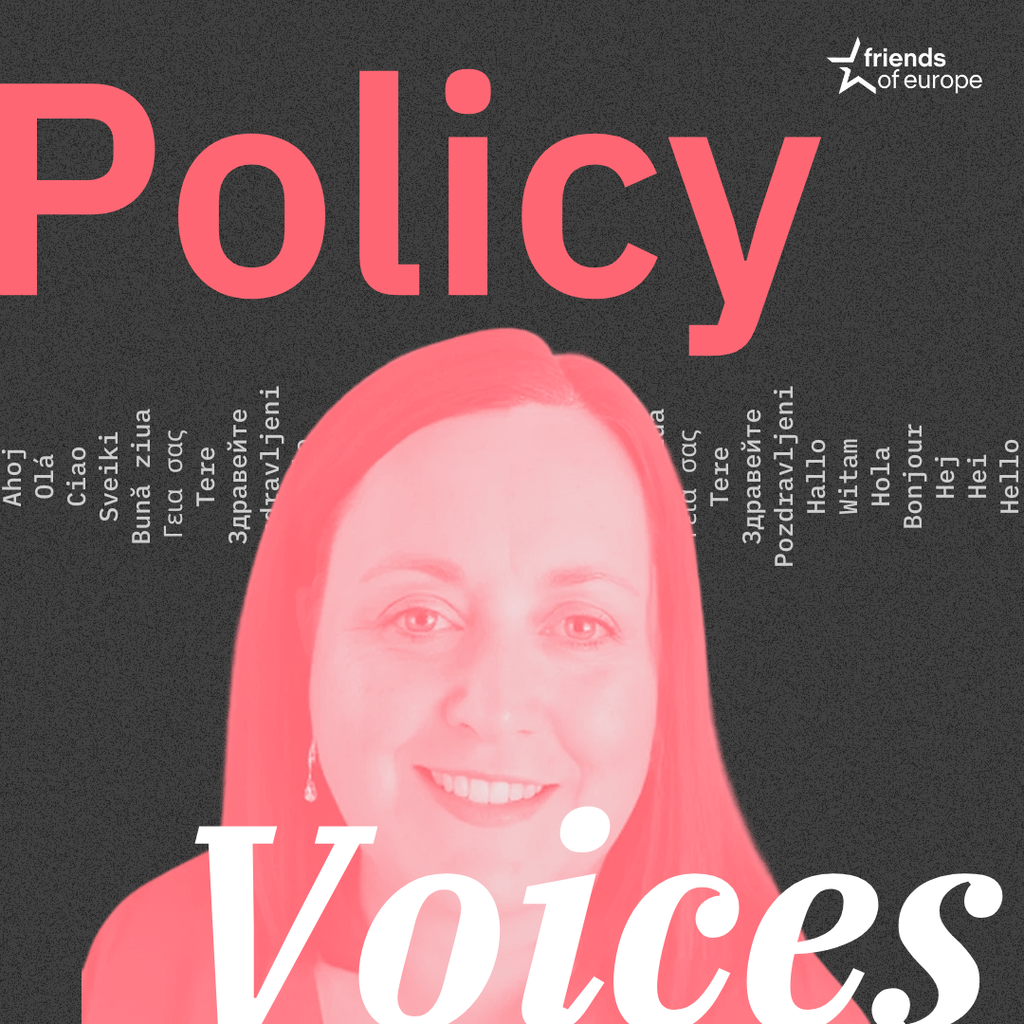
- Area of Expertise
- Sustainable Livelihoods

- Area of Expertise
- Sustainable Livelihoods
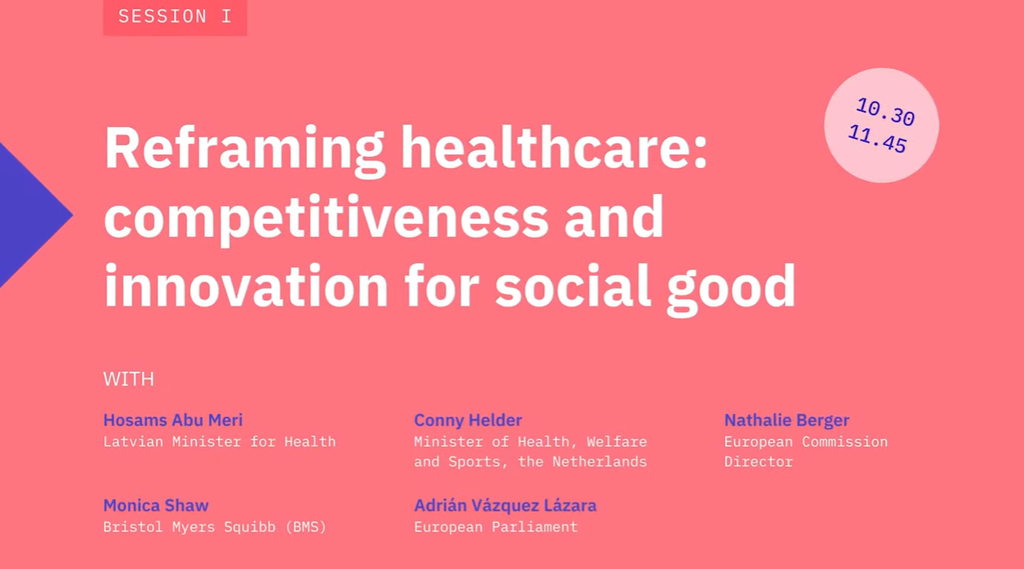
- Area of Expertise
- Sustainable Livelihoods

- Area of Expertise
- Sustainable Livelihoods
Continue
the debate on
- Debating Europe

